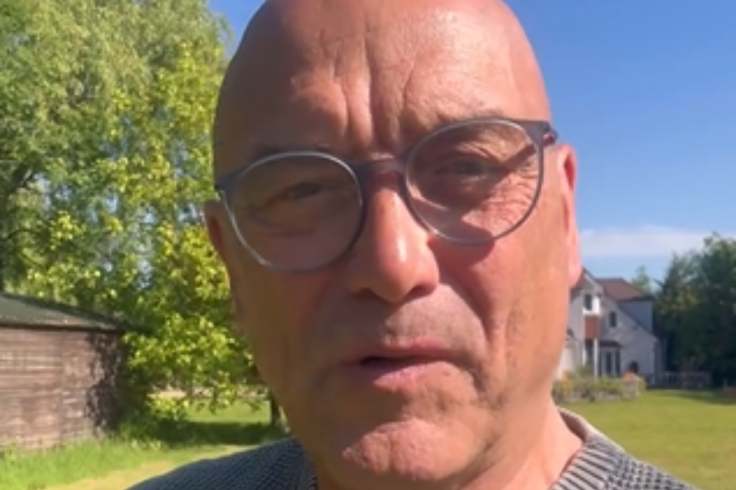What Racist Term Did John Torode Say To Get Sacked From The BBC? UK's Masterchef Scandal Continues
MasterChef judge John Torode dismissed by BBC following an investigation into a racial slur used during production

Reinforcing its zero-tolerance stance against the use of racist language, BBC has confirmed that long‑serving host MasterChef John Torode will not return to the programme after an independent inquiry upheld a 2018-19 workplace complaint that he used 'an extremely offensive racist term' during a conversation.
The decision comes as part of a more exhaustive investigation into misconduct on the show, including allegations against his former co‑host Gregg Wallace.
Substantiated Racist Language
An independent review led by law firm Lewis Silkin found credible evidence that Torode used a racist slur in a private workplace setting, reportedly in 2018 or 2019.
The BBC noted that although the allegation centres on a one‑off incident, the language used was 'extremely offensive' and inconsistent with its zero‑tolerance policy.
Torode, 59, who has fronted the show since its 2005 relaunch, directly addressed the claims:
'I have absolutely no recollection of any of this, and I do not believe that it happened,' he said, adding that he is 'shocked and saddened' by the allegation.
Falling in the Wake of the Gregg Wallace Inquiry

Torode's dismissal follows the sacking of Gregg Wallace, whose contract was also reportedly terminated after the investigation upheld 45 out of 83 complaints—spanning sexual harassment, bullying, and culturally insensitive remarks—across 17 years. Torode's incident was uncovered during the same enquiry.
BBC Director‑General Tim Davie stressed that nobody is above the show's values: 'We will not tolerate racist language of any kind,' he said, urging Banijay UK, the production partner, to take action.
Torode's Shock and Response
Torode claims he first discovered his dismissal via a BBC News alert and had 'had no say' in its timing.
He expressed heartbreak and disappointment, stating he had 'loved every minute' on MasterChef but now feels it is 'time to pass the cutlery'.
He published a message on Instagram reiterating his denial and regret for any unintended offence.
Support swiftly emerged from colleagues. TV chef Matt Tebbutt, tipped as a possible successor, expressed solidarity, 'liking' Torode's public statement and commending his integrity.
MasterChef's Future in Limbo
Although filming for the next series of MasterChef UK has been completed, the BBC has yet to confirm when the episodes will air. Davie emphasised the show's enduring appeal, stating it is 'much bigger than individuals involved' and signalling reforms in workplace complaint handling.
Banijay UK echoed this responsibility, affirming a commitment to implementing stronger safeguarding and behavioural standards following Lewis Silkin's findings.
Context and Broader Impact
The scandal has reignited public scrutiny of workplace culture in the entertainment industry. Critics highlight the BBC's past failures in tracking and addressing misconduct, prompting calls for improved oversight of presenters and production pipelines.
Unlike Wallace's extensive allegations, Torode's concerns a singular incident, yet its inclusion highlights the BBC's insistence that any non‑tolerable language, no matter how infrequent, must have consequences.
What Racist Term Was Used?
Neither the BBC nor Banijay have disclosed the specific slur, citing the sensitivity and context of the workplace setting. What is known is that it was sufficiently egregious to merit independent substantiation and termination of Torode's contract.
The silence surrounding the exact phrase respects privacy and pending reputational safeguards, though critics argue transparency might reaffirm the BBC's commitment to accountability.
What Happens Next?
Viewers await news on whether the unaired MasterChef UK series will be broadcast or shelved.
Banijay and the BBC are conducting internal reviews to overhaul complaint procedures and safeguard participant wellbeing.
Industry-wide repercussions may follow, as the incident sparks reassessment of workplace cultures within TV production companies.
The dual fallout from Wallace and Torode marks a turning point for MasterChef—once a lighter culinary institution—now embroiled in a reckoning over cultural, ethical, and behavioural standards.
What remains clear is that whatever term Torode used crossed a definitive line for both the BBC and its production partners. In an era of heightened awareness around workplace discrimination, even historical incidents carry contemporary consequences, regardless of whether the specific words ever become public.
By refusing to repeat or specify the language, the BBC conveys a message that certain words remain too offensive to be publicly aired, even in the context of explaining a major personnel decision.
© Copyright IBTimes 2025. All rights reserved.



















